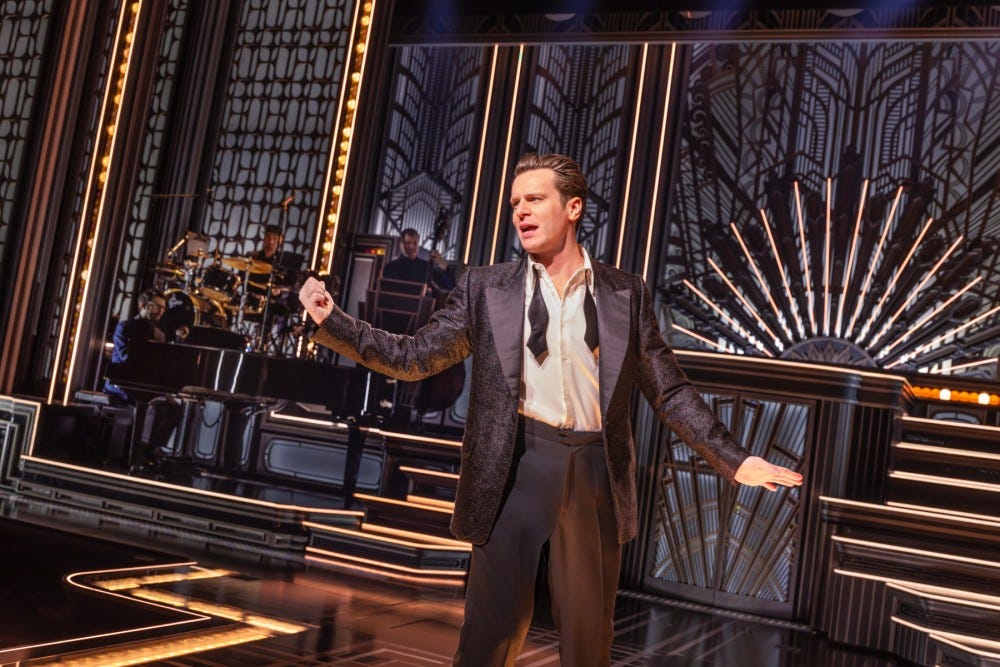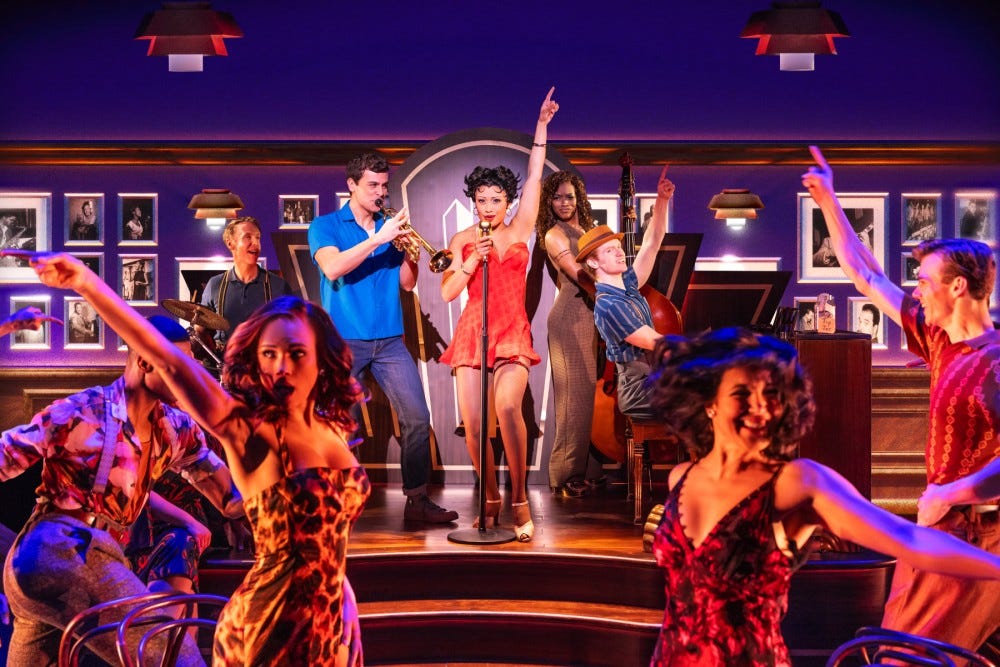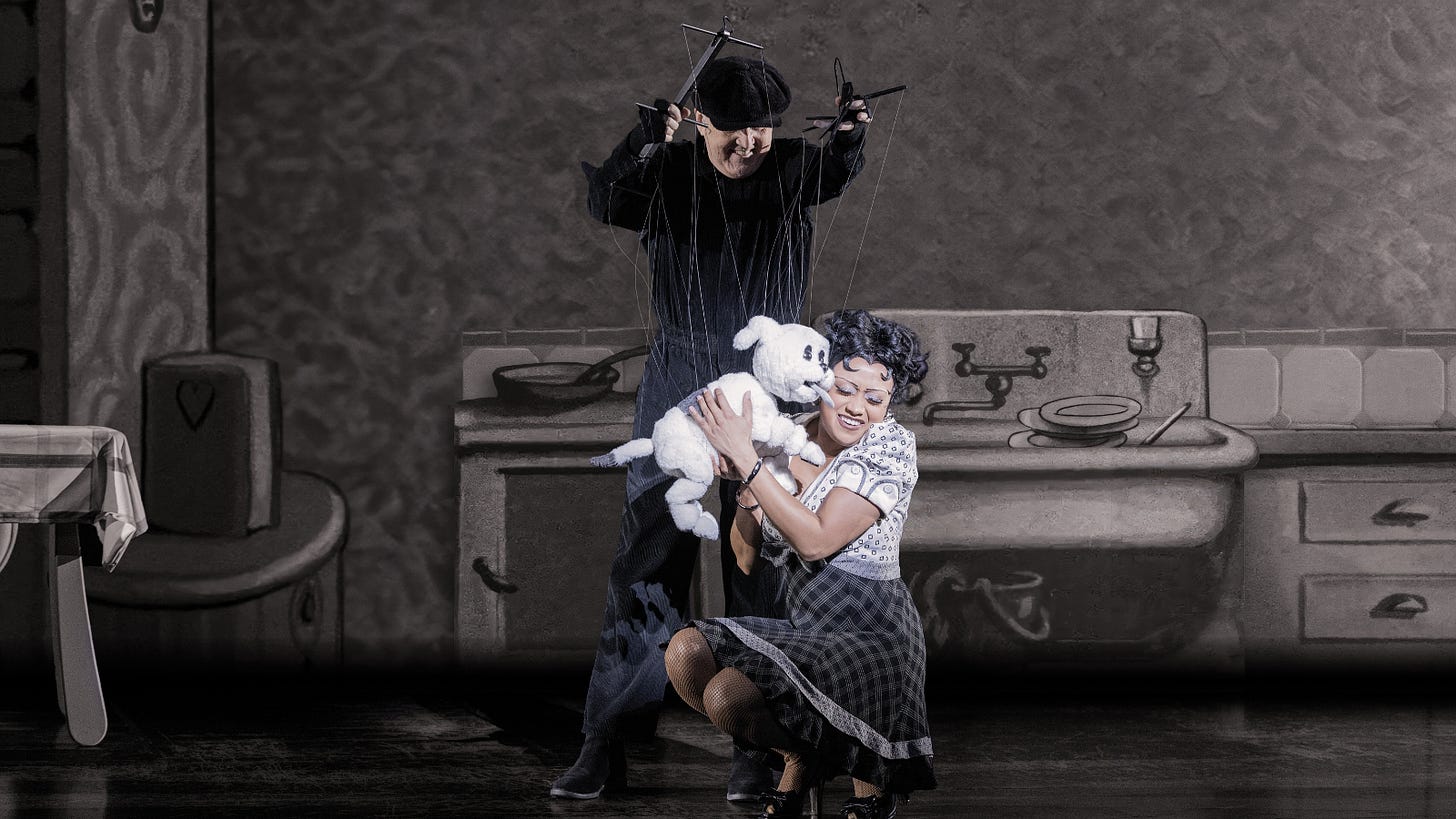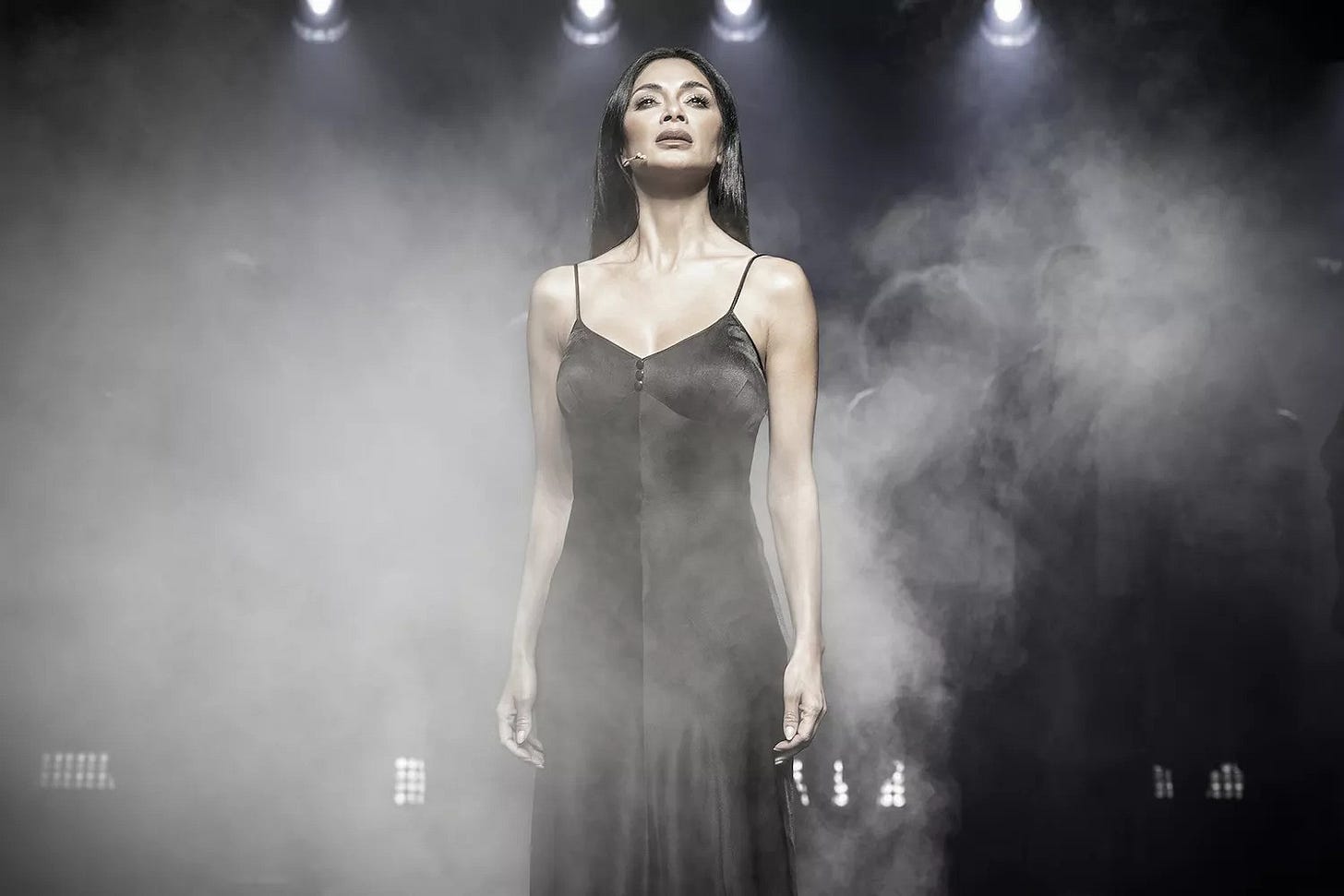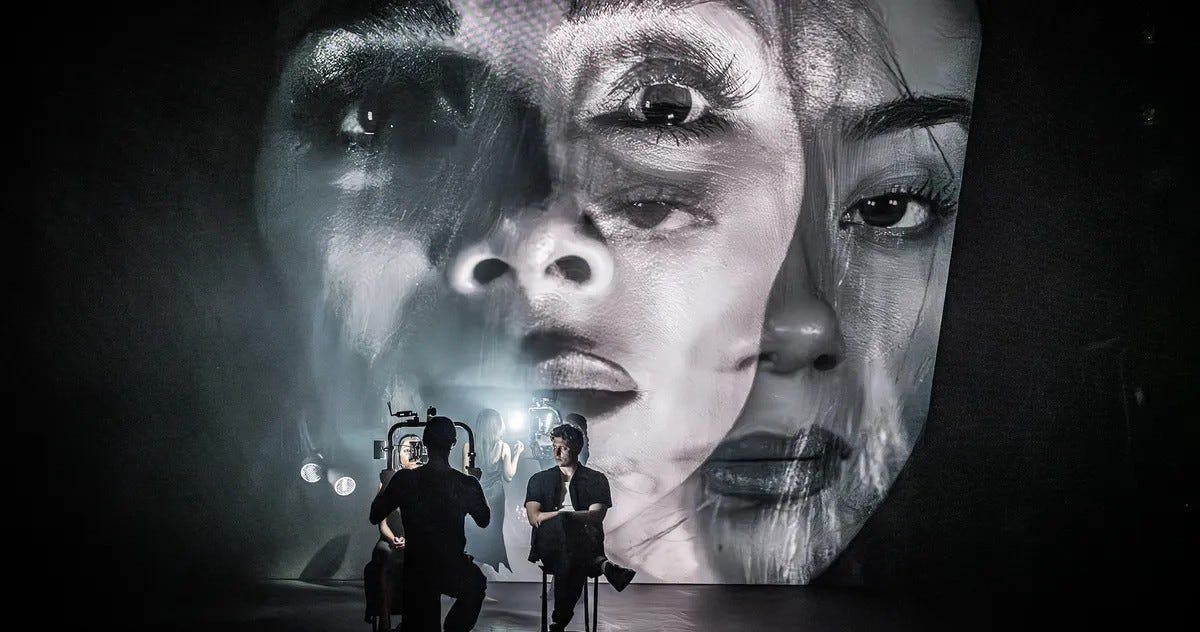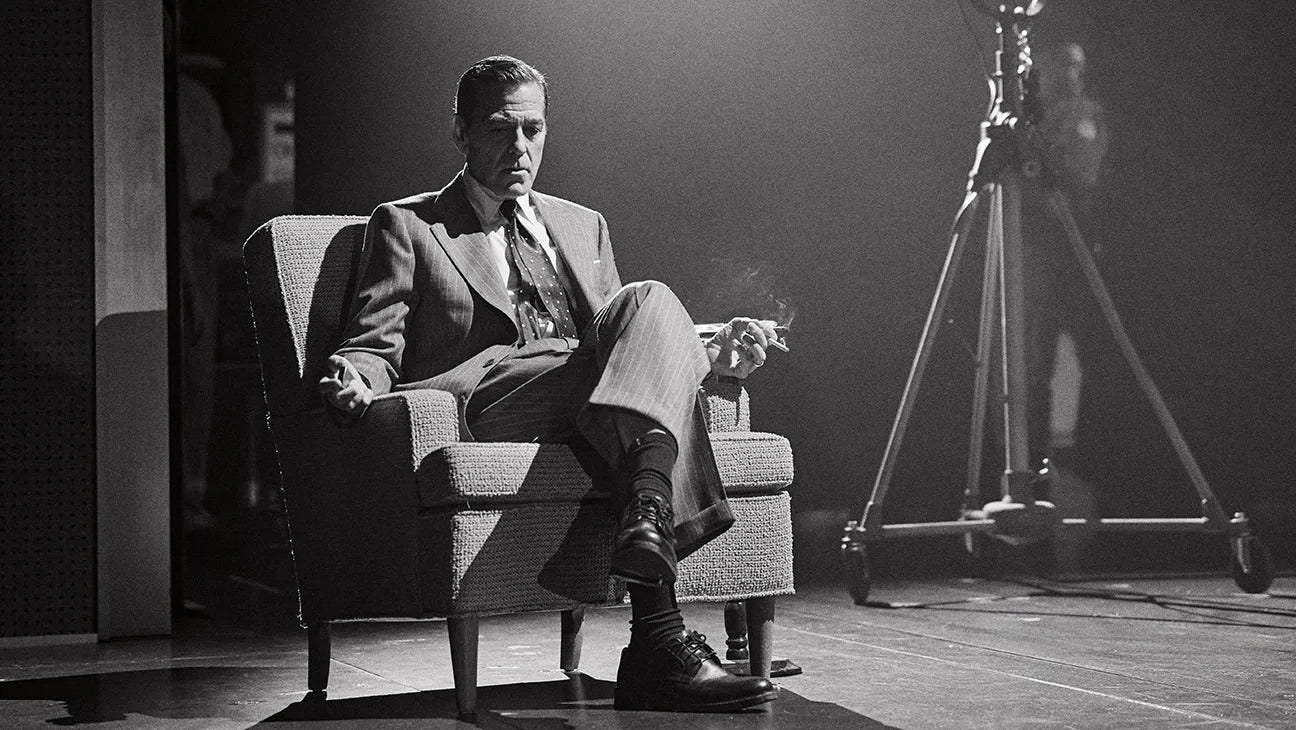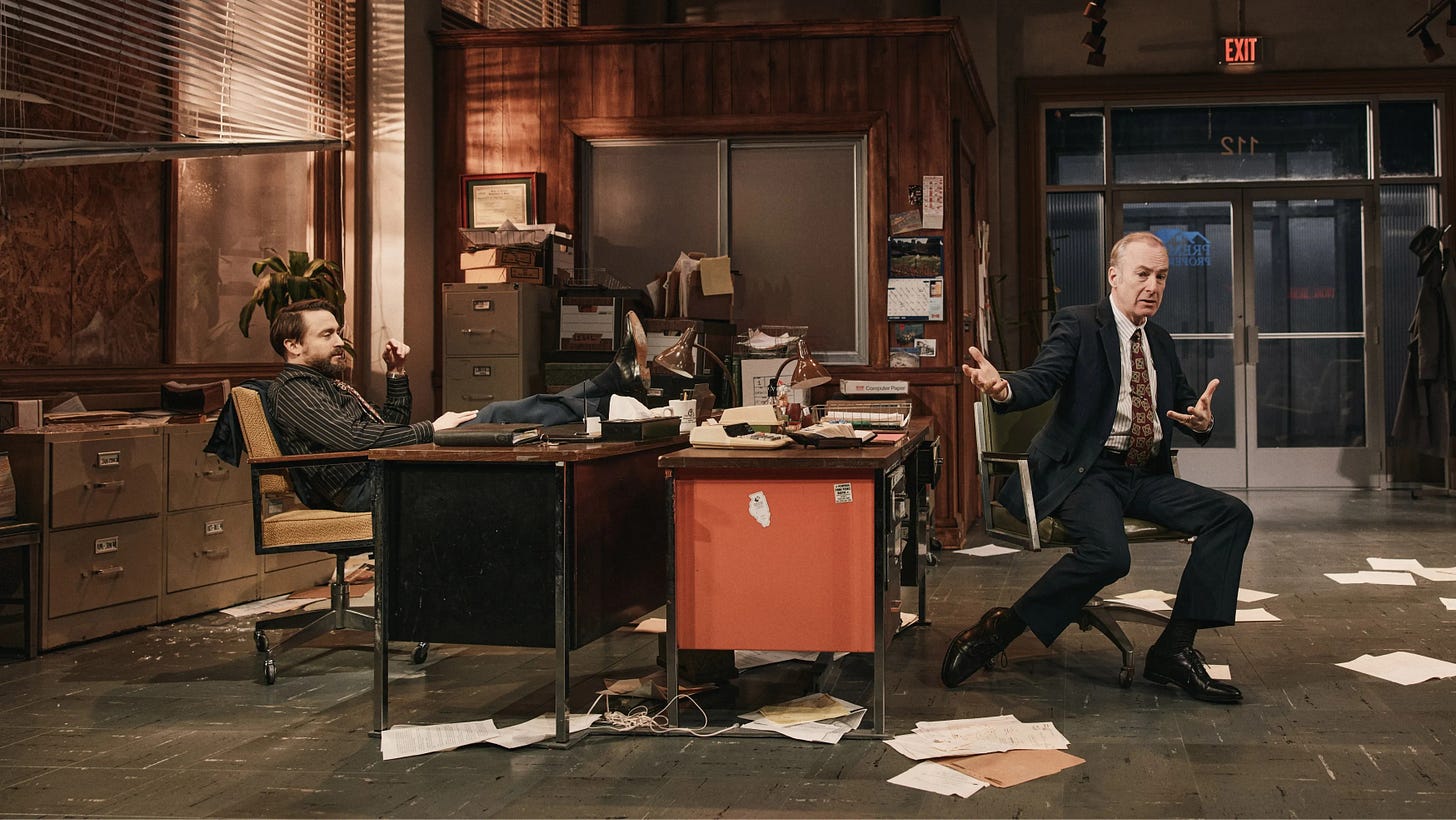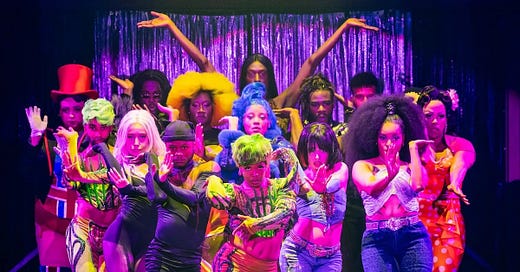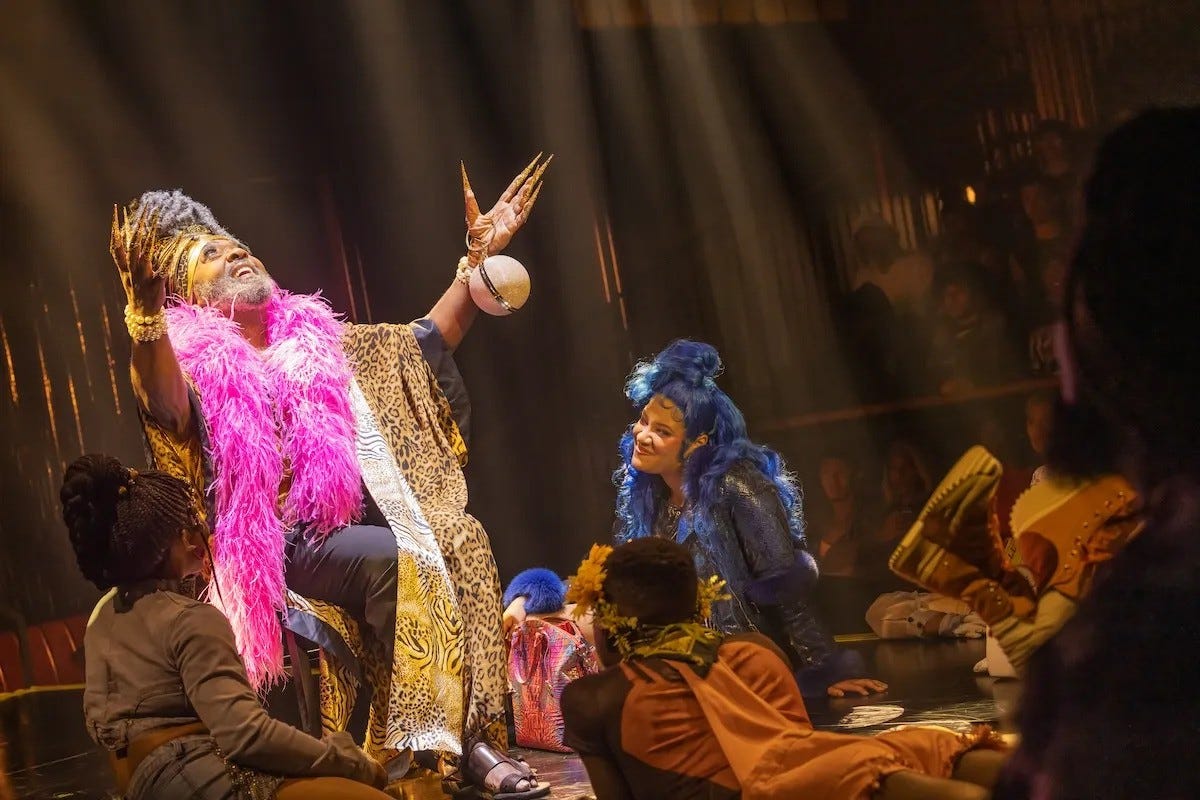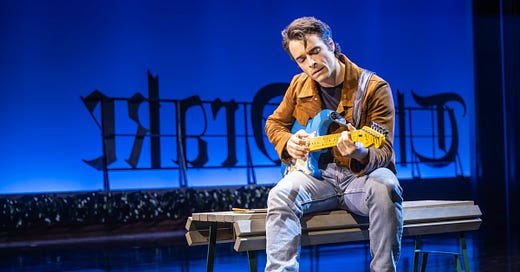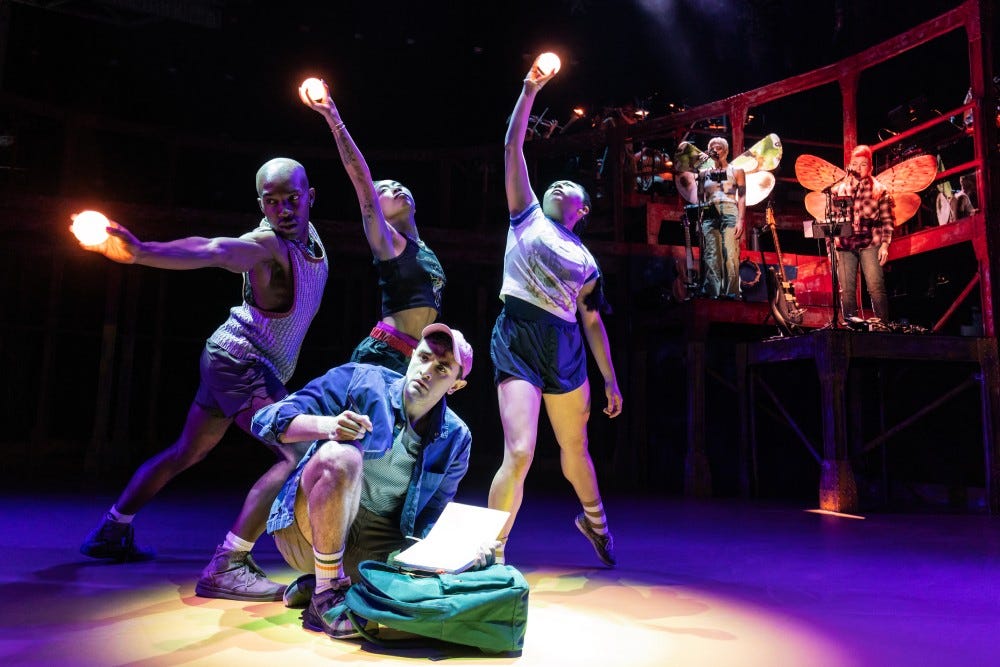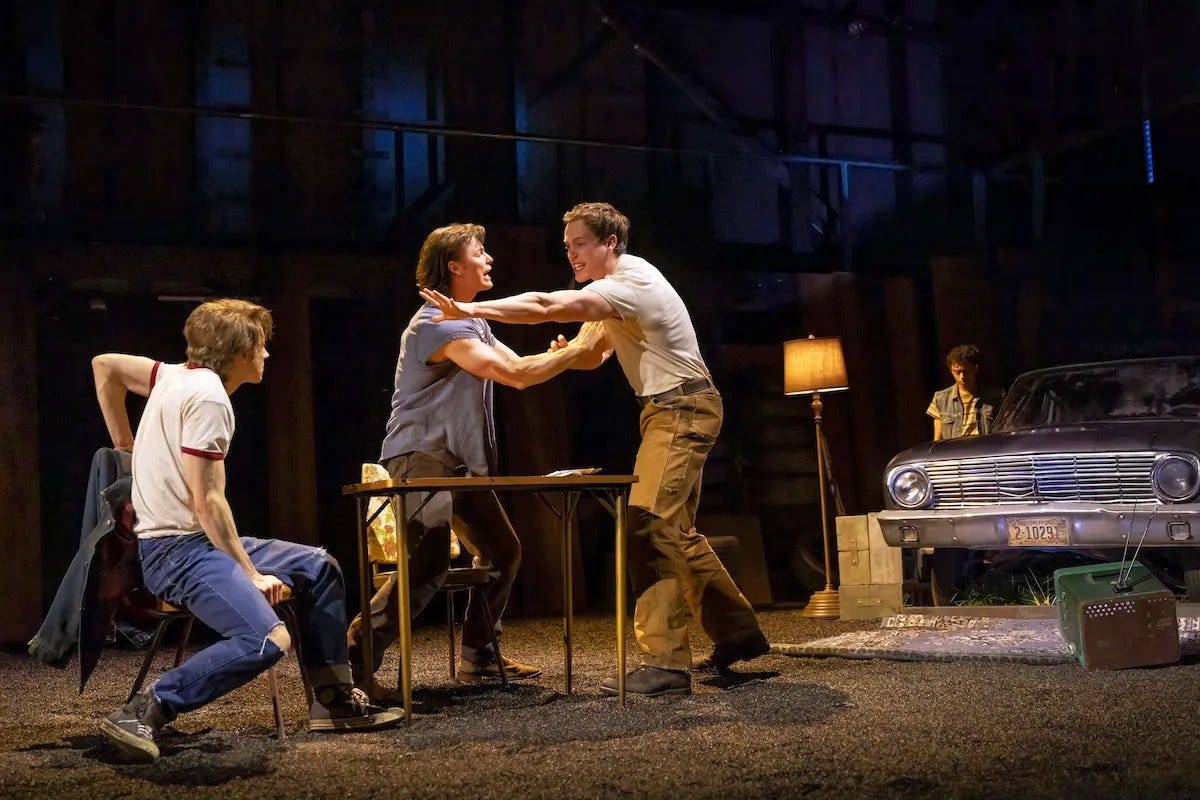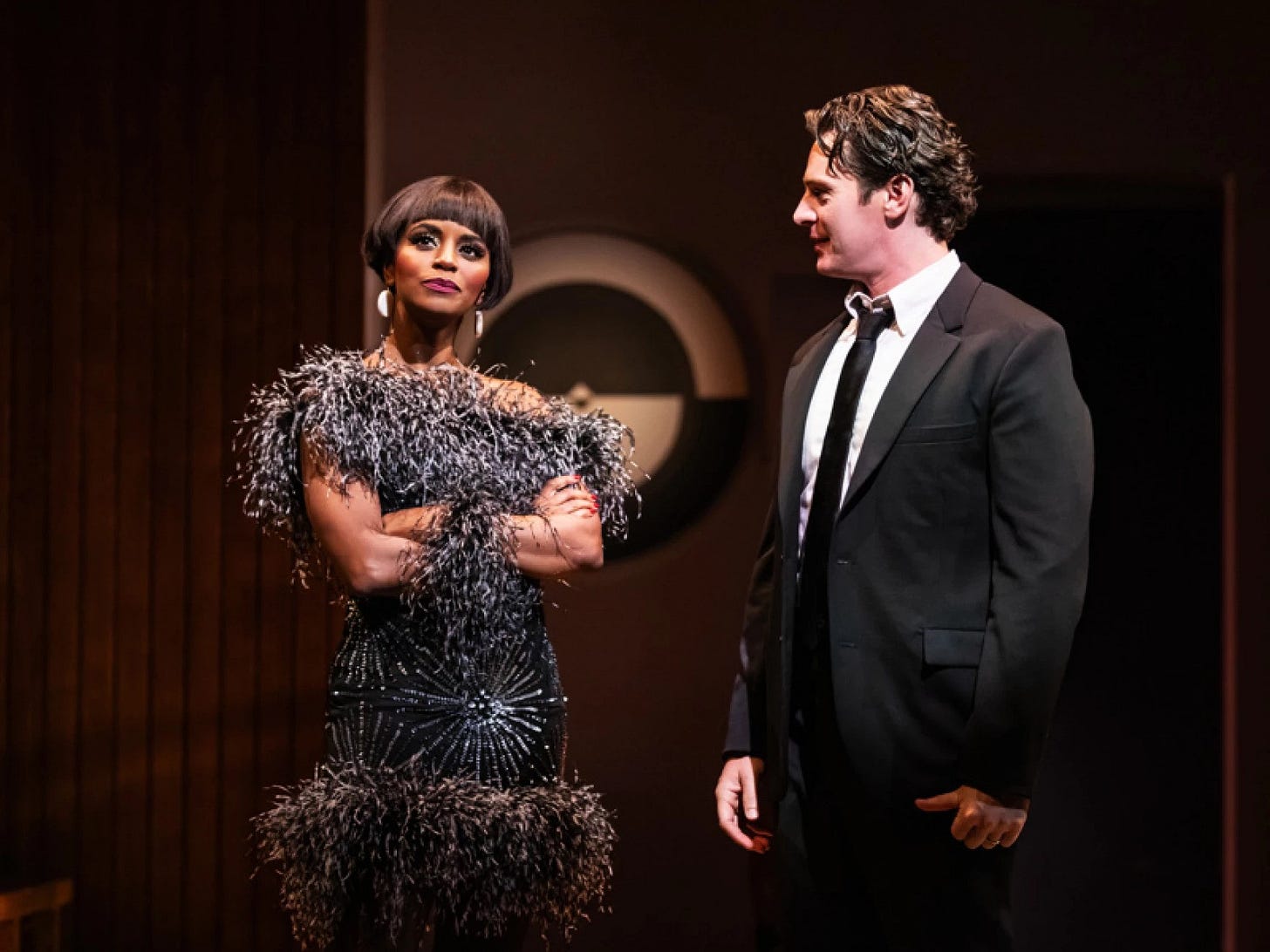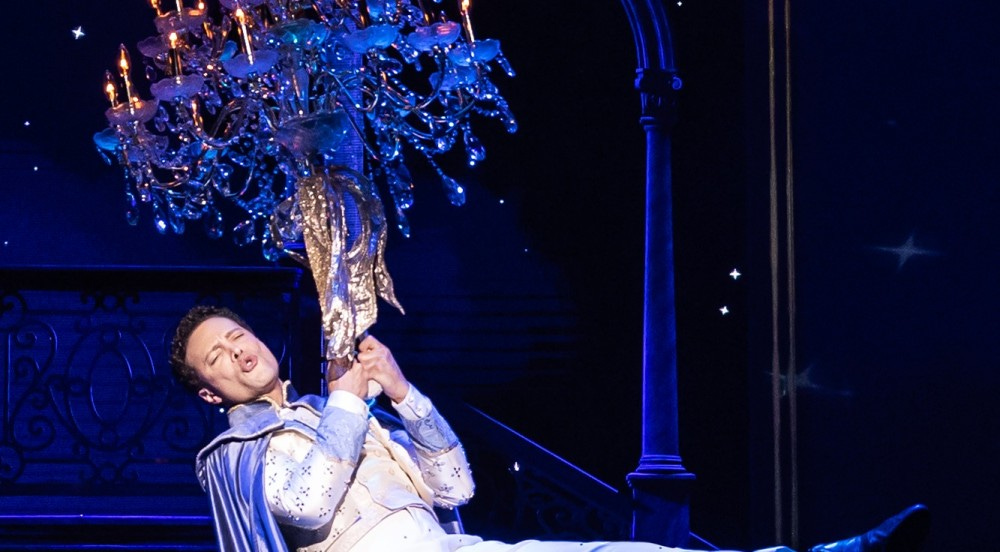You found me just in time
I’m embracing positivity by breaking down jukebox musicals I actually like.
Will we ever exit the age of the jukebox musical? Probably not. There are several successful jukebox shows from seasons past still running on Broadway: & Juliet, Moulin Rouge!, MJ, Hell’s Kitchen. Familiar IP is familiar IP—it’s the reason why the even bigger trend these days is musicals (and plays) adapted from movies. Thankfully, the two jukebox shows from this past season that are still running are both ones I can recommend unreservedly. Perhaps this subgenre is simply getting better! Or maybe we just lucked out when it comes to the last 2024-2025 Broadway season jukebox musicals still standing.
Before I refresh you on my patented (not actually patented, but don’t steal) scoring rubric, a word on two shows that closed. It didn’t feel fair to break them down here, mostly because they’re long gone and I have… mixed things to say. (Here’s where I’d insert the Simpsons “stop, stop, he’s already dead!” GIF if I knew how to do that on Substack.) At the same time, I think they’re worth mentioning.
So, in brief and sans rubric, A Wonderful World - The Louis Armstrong Musical mostly felt as overstuffed to me as its title. What made it worth seeing was the lead performance by James Monroe Iglehart, well deserving of the show’s sole Tony nomination. The musical biopic has been done to death at this point, and there was nothing new about the take here, but I’m glad I got to see Iglehart do it. Then there’s Swept Away, a show I admired more than I enjoyed. The Avett Brothers score was lovely, and I appreciated how dark the book got—I am always here for an ethical debate on cannibalism in a musical—but it never quite cohered for me. I wish it had found an audience, in large part because I want more weird and challenging shows. Also, in a season with far too many screens for my liking, I do have to shout out the gorgeous set design.
But on to the main (albeit abbreviated) event, the scoring of the two jukebox shows from last season you can still see. As a reminder, here’s how the rubric works—
Originality of story: Is there something that feels fresh about this story, or is it just telling an artist’s story and falling back on all the most familiar tropes? (X/10)
Preponderance of bops: I don’t think this needs any explanation. How many bops are there? Are they of a high quality? It’s subjective, but I’m right. (X/10)
Integration of music: Are the songs entirely diegetic, and if so, do they still work to move the story forward? If people are breaking into song, does it feel labored? (X/10)
Musical self-awareness: The worst jukebox musicals take themselves (and the artists they’re celebrating) way too seriously. Are we having any fun with the material? Are tongues firmly planted in cheeks? (X/10)
Audience self-awareness: Does the audience know they are seeing a live performance? The more they sing along, the lower this score is. Whether or not it’s fair to blame that on the show, I’m going to. (X/10)
Total score: X/50
Buena Vista Social Club

Originality of story: Although the show is based on the album of the same name (and might owe a bit of inspiration to the 1999 Wim Wenders documentary), the story is entirely original. It’s also weighed down with predictable tropes, so I can only give partial credit here. (6/10)
Preponderance of bops: The impeccably performed score of Buena Vista Social Club is by far the best thing about it. The second time I went, I largely ignored the book and just paid attention to the songs, and that was a much better experience. “Candela” goes so hard. (9/10)
Integration of music: This is a tough one to score, because the songs are all diegetic, and I wouldn’t say they really move the story forward (with some exceptions). I’m still inclined to be generous, though, given how much the music is the centerpiece of the experience. (8/10)
Musical self-awareness: Yes, the show takes itself very seriously, but it’s with a level of respect that feels appropriate given the subject matter. And there is at least an acknowledgment that the bulk of the story is completely made up, which counts as self-awareness to me. (7/10)
Audience self-awareness: I didn’t hear anyone singing along, but I did see several audience members giving themselves over to the music and having the time of their lives. What more can you ask for, really? (9/10)
Total score: 39/50
Buena Vista Social Club is running at the Schoenfeld Theatre. Buy tickets here.
Just in Time
Originality of story: I was worried that Just in Time would follow the typical structure of the bio-musical, so I was delighted when the show started and Jonathan Groff was playing himself. It’s a smart deconstruction of the format, even if it does eventually end up in familiar terrain. (7/10)
Preponderance of bops: Did you know I love Bobby Darin? Why was I the last person to find out? But really, there are so many songs that absolutely crush, including the biggies like “Splish Splash” and “Mack the Knife.” Gracie Lawrence doing “Who’s Sorry Now” is also a highlight. (9/10)
Integration of music: Many of the songs are diegetic, but they do move the story along, with the aforementioned “Who’s Sorry Now” punctuating Connie Francis and Bobby Darin’s breakup, for example. The non-diegetic numbers are a little less successful. (7/10)
Musical self-awareness: I think we’ve all grown somewhat fatigued by shows going meta, but the reason this one works as well as it does is that it’s commenting on the jukebox genre while also embracing sincerity. To me, it’s the perfect blend. (9/10)
Audience self-awareness: Another thing many of us would like to move on from? Immersive entertainment. And yet, Alex Timbers continue to strike the right balance. The audience is part of the show here, but never in a way that feels intrusive—or encourages them to loudly sing along. (9/10)
Total score: 41/50
Just in Time is running at the Circle in the Square Theatre. Buy tickets here.



